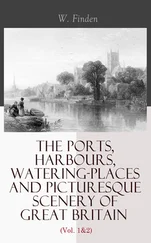CHAPTER TWENTY
THE MUSIC OF THE SCYTHE ON THE LAWN OUTSIDE
In 1928, sixteen years before Constance Kent's death, the crime writer John Rhode published a book about the murder at Road Hill House. In February the next year his publisher received an anonymous letter postmarked Sydney, Australia, which began with the instructions: 'Dear Sir, Do what you like with this, if any cash value send it to the Welsh miners to men who our civilization is torturing into degeneration Please acknowledge receipt in the Sydney Morning Herald under Missing Friends.' The letter went on to give a child's-eye view of the Kent family's early life. It was an astonishingly vivid document, about three thousand words long, and it was difficult to believe that it could have been written (or dictated) by anyone other than Constance. In places, it closely matched the letter she wrote to Eardley Wilmot and the petitions to the Home Secretaries, none of which was made public until many years later. Though it made no mention of Saville, the letter from Sydney sought to explain the origins of his death.
According to this document, Constance loved the 'pretty, very capable' governess who joined the Kent house-hold in the early 1840s, and Miss Pratt made 'a pet' of her. But Miss Pratt's arrival soon divided the family. The elder son, Edward, quarrelled with Samuel when he met him emerging from the governess's bedroom one morning. As a result, he and the two older daughters were dispatched to boarding school. When home from school all three favoured their mother's wing of the house, as did William, the youngest, to whom Mrs Kent was 'devotedly attached'. Mary Ann and Elizabeth, according to the letter-writer, were always adamant that their mother was sane. Constance, meanwhile, spent her days in the library with her father and her governess. Miss Pratt 'spoke of Mrs Kent with a sneer, calling her a Certain Person, ridiculing her. Constance was sometimes rude to her mother & would tell the governess what she had said, she made no comment other than a Mona Lisa smile.' Mrs Kent used to describe herself to her children as 'your poor mama', which puzzled Constance.
The house-hold became reclusive, and as the children grew up their friendships were closely monitored. One day Constance and William were tending their plots of earth behind the shrubbery when they were drawn to the sound of 'merry laughter' from the next garden. They looked longingly over the hedge and, though they had been forbidden to play with the neighbours, could not resist an invitation to join in. Their transgression was discovered, and as punishment their 'little gardens' were 'uprooted and trampled down'. Outsiders were not welcome: two tropical birds sent by Edward to his siblings were confined to a cold back room, where they died.
Constance was once encouraged to befriend a girl who lived a mile or so away, but the relationship was not a success: 'after a period of mutual boredom, the girl falsely accused C of trying to set her against her mother'. The accusation was poignant, given that Constance had herself been taught to treat her mother as an enemy.
As Constance grew up, the affection between her and the governess wore thin. Lessons were particularly fraught. If Constance mistook a letter or word, she was punished for obstinacy.
The letter H gave Constance many hours of confinement in a room while she listened longingly to the music of the scythe on the lawn outside, when words were to be mastered punishments became more severe 2 days were spent shut up in a room with dry bread & milk & water for tea, at other times she would be stood up in a corner in the hall sobbing I want to be good I do I do, till she came to the conclusion that goodness was impossible for a child & could only hope to grow up quickly as grown-ups were never naughty.
The letter from Sydney was written throughout in this loosely punctuated, fevered style, as if the writer were rushing to channel a torrent of memory.
When the family moved to Baynton House, Wiltshire, the letter-writer continued, Miss Pratt punished Constance's fits of temper by locking her in a garret, and the girl delighted in perplexing her gaoler. She used to 'act the monkey' by draping a fur across her chest, climbing out of the window, scaling the roof, sliding down the other side and slipping into a different attic room. She would then return to the room in which she had been confined, unlock the door and let herself in: 'the governess was puzzled at always finding the door unlocked, the key was left in, the servants were questioned but of course knew nothing'.
If imprisoned in the wine cellar, Constance lay on a pile of hay and 'fancied herself in the dungeon of a great castle, a prisoner taken in battle fighting Bonnie Prince Charlie & to be taken to the block the next morning'. Once, when Miss Pratt released her, the girl was smiling, 'looking rather pleased over her fancies'. The governess asked her why.
'Oh,' she said, 'only the funny rats.'
'What rats?' asked Miss Pratt.
'They do not hurt,' said Constance, 'only dance and play about.'
Her next gaol was a beer cellar, where she pulled the spigot off a cask, and after that she was locked in two spare bedrooms that were said to be haunted - on a certain date, a 'blue fire' burned in the grate. If confined in her father's study on the ground floor, she clambered out to climb trees, 'displaying a very cruel disposition by impaling slugs and snails on sticks in trees and calling them crucifixtions'. She was a 'provocative and passionate' child, who longed for excitement, even violence. She would slip away to the woods 'half hoping half fearing, she might see a lion or a bear'.
At boarding school she was 'a black sheep', said the author of the letter, 'resentful of authority', 'ever in trouble', though she had 'nothing to do with the gas escape, which was probably owing to the taps having been forgotten when the meter was turned off'. (The writer's anxiety to clear Constance of the school gas leak is a convincing detail.) Constance gave nicknames to her teachers. One was 'Bear in a bush' for his thick black hair. A minister who took Bible class learnt that he was known as 'the Octagon Magpie' (a reference to the shape of his chapel). Instead of reprimanding her, the minister laughed and 'thinking he might bring some good out of her took some extra pains with her, but seeing the other girls were jealous she gave stupid replies on purpose & so fell from grace'. After this she made an attempt to 'turn religious', but a book by the Puritan preacher Richard Baxter convinced her that she had already committed 'the unforgivable sin' - blasphemy against the Holy Spirit - and so might as well give up on goodness.
The letter claimed that Constance read Darwin as a girl, and scandalised her family by expressing her belief in his theory of evolution. Constance, like William, seemed to find release in the natural world. Animals ran through the letter from Sydney like emissaries of freedom - the lion, the bear, the sheep, the monkey, the magpie, the tropical birds, the dancing rats, even the sacrificial slugs and snails.
After her mother's death, Constance was convinced that 'she was not wanted, everyone was against her', and her new stepmother confirmed this to her. Once, when Constance was home from boarding school, the second Mrs Kent told her that 'only for me you would have remained at school when I said you were coming one of your sisters exclaimed What! That tiresome girl so you see they do not want you'. Constance was inspired to run away to sea with William, said the letter-writer, by reading about 'women disguised as men earning their living and never found out until they were dead'. She persuaded her brother to go with her, and afterwards 'was treated as a bad boy who had led the other astray'.
Читать дальше












